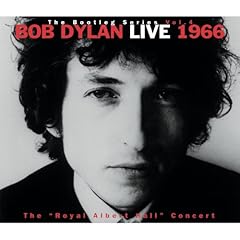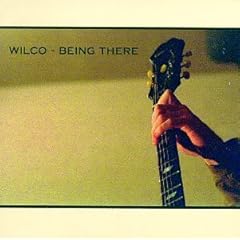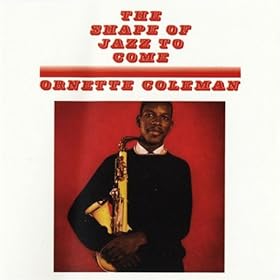Bootlegs have a special place in the history of rock music. On the most personal level, acquiring a bootleg of the show you were at is pretty sweet. For example, I went to a Flaming Lips show in 2006. The show was awesome. Well, it was more than a show...it was a spectacle. I have the bootleg of this particular show. Now, if I want to relive that night (in some capacity), I can listen to that show. Good bit. Of course, I wish someone had bootlegged the Sonic Youth set too...
If it makes a difference, I am currently listening to a bootleg of Wilco, 2003.06.28 at Penn's Landing in Philadelphia. For those who are looking for a good Wilco bootleg, I would not consider this a bad place to start.
But enough about personal stories. Bootlegs have preserved many a historic event. Take, for example:

To start an argument for another time, I would argue that this was possibly the
most important night in the history of rock music. More important than the Beatles on Ed Sullivan? I would say so. But that's for another time. The point it, the moment of "Judas!" would have been a lost legend except for hearsay if it were not for the dudes who took up the noble mantle of bootlegging and, well, bootlegged this show. In some ways, bootleggers are the scribes of rock. They see, and they "write." An external source that can "see it as it is." Thus, they do serve some sort of function. Perhaps it's even vital. The most special moments are not always those (publicly) documented, so it's up to the concert-goer to take matters into their own hands and save it for posterity.
To be truthfully honest, there are those bands that are junk in the studio, but when they step onto the stage, they morph into some sort of extraterrestial being and play the lights out. Bootlegs become the primary way to show the stuff to those who can't attend concerts. A band can play a lights out show, and a friend can rant about how good it was, but if your money's tight (as it probably is for everyone right now), you're not gonna go with true proof. And with a bootleg, you got your proof in the pudding. Bootlegs can do wonders for those sorts of groups who are limited in what they can do in the studio.
The argument against bootlegging is that it takes money away from artists. Supposedly a bootleg will prevent people from buying the real records. There are two problems with this. The first is the nature of the bootleg. It's not a studio record. It's not going to sound as good. It can never replace a studio record. A bootleg is not designed to replace studio records, it's supposed to document a particular event in time. Given that perhaps a bootleg has the capacity to displace potential buyers, it's going to probably attract just as many potential buyers as it will scare them off. A person impressed with a bootleg will be more likely to buy those records. So really, the net change of people buying is not really going to extravagantly change.
The other issue with that argument is that the nature of the music business has changed. For the typical band, the majority of the revenue for the group actually comes from touring and live shows. Perhaps in the distant past this was more of a problem as groups would rely on record sales, but nowadays it's not a problem. A bootleg will attract people to shows, and as a main source of revenue the tour will get minute boosts from those who choose to attend based on those...and there won't really be a loss in sales, since a concert-goer will likely not only buy a ticket but also some merchandise. Thus the potential loss is minimal if not negative (meaning a net gain). You get the gist of it. I think I may have gotten a little to economical on that one, but such is the life of an economics major.
Artists have caught on to this bootlegging deal. As with the legendary Dylan show, among others, have attempted to outbootleg the bootlegger, using them to get sales. Perhaps it's reasonable to do so, but then when it's packaged from the artist, it's not really a bootleg anymore, it's just a live recording issued by the artist. Bootlegging has a sort of romantic, adventurous quality about it. Defying the odds, or simply being able to do it because the artist lets you, bootlegs gain a sort of charming roughness to them for one reason or another. They're recorded by a fellow fan, which means they likely love this band as much (or likely more) than you do, and so it becomes a special gift from a fellow fan, not some "gift" from management. This is no rag against live albums released by the band, but those are entirely different beasts that give and receive their own dues.
So all this repackinging by artists comes off as a little douchey to me, because theoretically I should be able to acquire it in its true bootlegged form. As someone who is familiar with bootlegs, I do not particularly care if there are hisses or cracks in audio sources. They give the bootlegs their charm. And I don't want to pay money for hiss/crack removal. Case in point: Neil Young at Massey Hall, Toronto on January 19th, 1971. I got this as a bootleg. A year later, the dudes marketing Neil Young take the bootleg, spruce it up and perhaps clean it up to later sell it. I like my hissy bootleg, thank you very much. I give you your critic manlove, Neil Young, because you more than deserve it, but this "de-bootlegging" reeks and I can't condone that.
Perhaps I am some sort of "bootleg elitist" (?), but bootlegs are a fickle and idiosyncratic things that must be respected as they are, and any attempt to not is virtually criminal (and no, bootlegging itself is not criminal).











